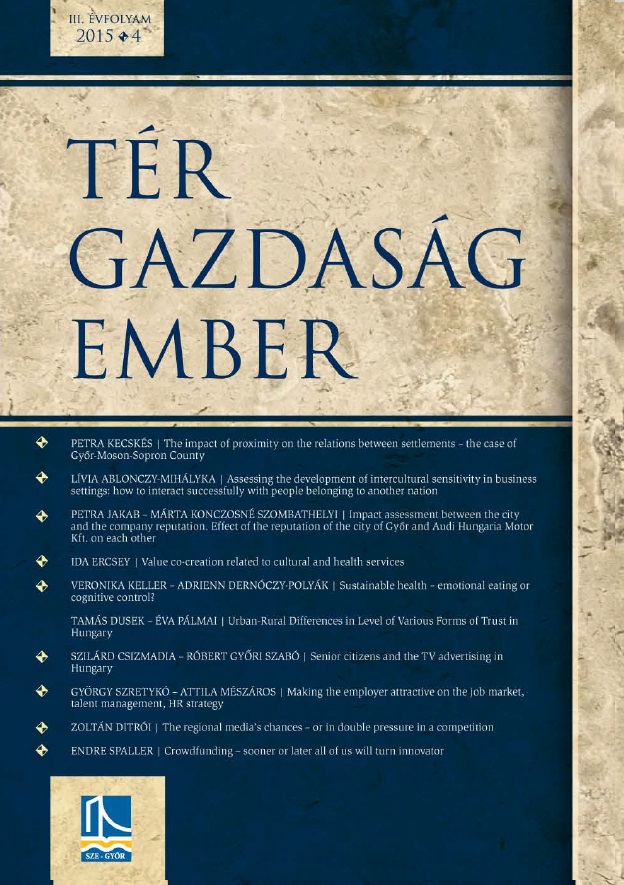Sustainable health – emotional eating or cognitive control?
Absztrakt
Overweight and obesity is an epidemic that appears in the developed countries of the world. Overweight and obesity means a serious expenditure for the consumers, for the employers and for the states both in the prevention and in the treatment phases. In the national and international literature many authors deal with the research from the dimensions of healthy lifestyle either in a complex way or focusing on a special area (e. g. smoking, alcohol consumption, physical activity or eating behaviour). There are many tests investigating food consumption, but the most widely used ones are the Three Factor Eating Questionnaire (TFEQ) and the Dutch Eating Behaviour Questionnaire (DEBQ). These scales were validated in many countries on the population with
normal weight and overweight obese individuals and three types of eating behaviour were identified, namely emotional eating, restrained eating and external eating.
The aim of this study is to introduce the adaptation possibilities of each scales (TFEQ 16, DEBQ, TFEQ 20) measuring eating habits. In an empirical research 1323 adult people were interviewed and 407 people answered to the attitude statements of TFEQ 16, 404 people reacted to the DEBQ and finally 512 people filled in the TFEQ 20.
The results of the primary research do not completely support the original factor structure. In the case of TFEQ 16 the emotional eating appears in two factors. In the case of DEBQ the external eating can be classified into three factors, (1) the effect of taste, (2) the effect of smell and (3) the effect of society. In the case of TFEQ 20 only three items of cognitive control can be validated.
In the future the authors plan to extend the research to examine different relationships with BMI and to segment the population based on their eating styles in order to develop an effective marketing program for them.
Letöltések
Megjelent
Folyóirat szám
Rovat
License
Copyright (c) 2015 Tér - Gazdaság - Ember

This work is licensed under a Creative Commons Attribution-NonCommercial 4.0 International License.


